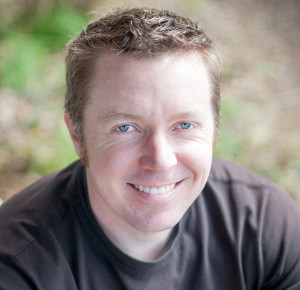 Holding his hands up to the heavens, Jesus takes a meager offering of five loaves and two fish and blesses it. After his blessing, the 5,000 men, plus women and children assembled in the wilderness, outside of Caesar’s reach, begin to eat. They eat until they are full, and there are still leftovers.
Holding his hands up to the heavens, Jesus takes a meager offering of five loaves and two fish and blesses it. After his blessing, the 5,000 men, plus women and children assembled in the wilderness, outside of Caesar’s reach, begin to eat. They eat until they are full, and there are still leftovers.
That’s how we have learned the story from Mark 6. Jesus, the guy in charge, rescues everyone in a pinch. But there is a key conversation before the miracle that often goes overlooked. Jesus has been teaching the crowd for the whole day, according to the story. The disciples stop him to point out that the crowd is getting hungry. Jesus might want to consider sending them to town to get something to eat.
“You feed them,” Jesus says. “Do it yourself.”
The disciples are perplexed. How are they to solve such a massive problem? They surely do not have enough money. They do not have enough food. They do not have enough anything to fix this. They are focused on what they do not have, what they lack. They can only see their deficiencies.
Jesus is not interested in their deficiencies. “What do you have?” he asks. And the overwhelming abundance of God begins to flow only when the disciples begin to work with what they do have. There is not enough, at least at first. But then there are baskets running over. I suspect that Jesus’s miracle was not so much to make food appear from nowhere as it was to use one small gift to encourage more and more sharing of many more small gifts. The wilderness often surprises. Outside of Caesar’s economy is an unexplainable abundance. It cannot be understood, only received as a gift among small groups of neighbors.
I thought of Jesus’ statement to the disciples a few weeks ago while I attended the Children’s Defense Fund’s annual Samuel DeWitt Proctor Institute for Child Advocacy Ministry at the Alex Haley Farm in Clinton, Tennessee. I needed to be there to listen. The question near the front of my mind, as with so many others there, was about the shape of discipleship in Trump’s America. Out in the wilderness, on the edge of the Empire, many of us needed to hear some word of comfort and encouragement and strength before we returned back to the desert heat of Caesar’s land. Of all the powerful and encouraging words I heard, one statement came through clearly, multiple times, from multiple people. They quoted Harlem-born poet June Jordan, saying, “We are the ones we have been waiting for.” Which reminded me of Jesus, speaking to the disciples out in the wilderness: “You do it.”
“We are the ones we have been waiting for. There is no one else to wrestle some good out of this present darkness.”
There is no cavalry on the way. There are no reinforcements en route. There is no second string who will eliminate the soul-crushing weight of this racial and economic domination system. Robert Mueller – even 1,000 Robert Muellers – will not save us from the racist troglodyte in the White House. And the scourge of overt white supremacy Trump encourages at every turn will not go away, even when he finally does. It has been with us all along, from the time the first Europeans washed up on these shores. It will persist until we fix it. And it is ours to fix. Now.
And we are the ones to do it. We, who aim to love our neighbors as ourselves. We, who in multi-racial coalitions are reclaiming a common moral narrative from across many faith traditions. We, who want to heal the souls scarred by the habits of whiteness. We, whose bodies are subject to the relentless assaults of poverty and incarceration and police brutality. We, who recognize that our security and prosperity can only be won by securing opportunities to thrive for every single child, especially those in opportunity-starved places. We, who refuse to cede the Abundance of God’s economy to Caesar’s rule by scarcity and fear. We are the ones we have been waiting for, and now is our time.
There is no one else to wrestle some good out of this present darkness.
Related commentary:
Greg Jarrell A gospel torn in two by a white Jesus
